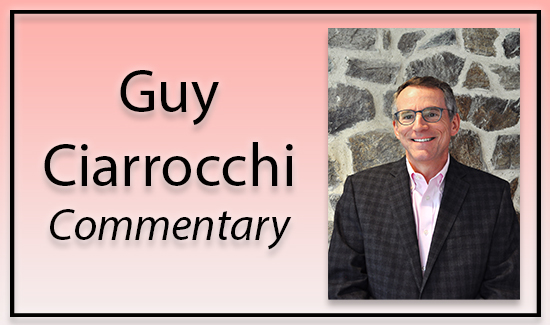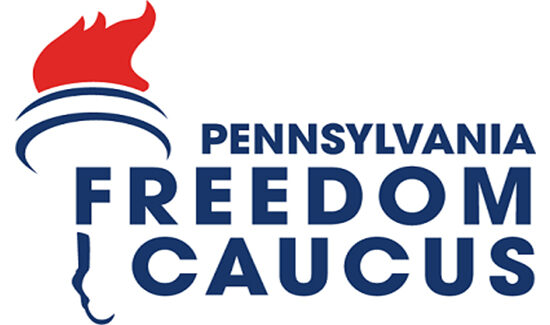Opponents of Lifeline Scholarship Fear They Will Work

In 2023, “school choice” is a unicorn among political issues, a thing rarely seen — if ever.
The goal of school choice legislation is to put parents in charge of their child’s K-12 education. Supporters want education spending to “follow the child” to a school that parents choose, rather than one that children are compelled to attend just because of their zip code. School choice can be education tax credits, vouchers, or Lifeline Scholarships that have been at the center of the Pennsylvania state budget fight.
Lifeline is a proposal for $100 million to be put in a fund that could be accessed by parents whose kids attend the worst schools in Pennsylvania (as determined by Department of Education rankings). Parents would apply for scholarship money to send their children to a better K-12 school. Supporters call Lifeline Scholarships a “rescue plan” because they would allow kids trapped in these failing schools to be rescued to attend a better school — one that the child’s parents have faith in.
Lifeline Scholarships are a political unicorn for a few reasons. First, most supporters in the legislature represent communities whose schools are not among the worst in the state. (They tend to be Republicans wanting to help children in overwhelmingly Democratic communities.) Second, many of the legislative opponents represent suburban communities whose schools are among the best in our state — they would be entirely unaffected by Lifeline Scholarships. Third, the opposition boils down to this: It will work — all parents want to choose a good school for their kids.
Opponents throw out a litany of arguments. But, at their core, they are all based on the “fear” that thousands of parents will actually seek out these scholarships, and use the scholarships at non-public schools.
They fear that many parents — especially in Philadelphia — will use Lifeline Scholarships to send their child to a parochial or other religious school. This, they argue, violates the “separation of church and state.” Wrong. The U.S. Supreme Court has twice upheld vouchers/scholarships, protecting parents’ rights to choose their child’s school, including religious schools, both in Carson v. Makin and in Zelma v. Simmons-Harris.
Moreover, common sense tells us taxpayer dollars are often used at religious institutions that serve the common good. Government-backed student loans and grants are used at religious colleges, even seminaries. And, the entire continuum of social services has religious providers from cradle to grave: hospitals, adoption services, juvenile justice services, rehabilitation facilities, nursing homes, homeless shelters, and soup kitchens.
And remember, not one dollar of Lifeline goes to any school unless a parent selects it for his/her child. So, the teachers union’s fear that millions of dollars will suddenly go to parochial schools in Philadelphia (or Pittsburgh, Reading, etc.) must be because they know where many of their colleagues send their own kids.
Another argument opposing Lifeline Scholarships — that, again, assumes parents want choices and will actually move their kids out of failing public schools — is the often repeated “wailing” that if parents use Lifeline, public schools will “lose money.”
As school choice advocates have been pointing out and repeating for years, money spent on education belongs to taxpayers, not any school district or school. So, a child transferring from school A to school B hasn’t “taken” money from school A. Rather, his parents have selected a new school where the money ought to go.
It’s time for people of good will to recognize the academic, economic and even moral cause of supporting Lifeline Scholarships.
But Pennsylvania’s draft budget does even more, guaranteeing that Lifeline Scholarships won’t “take money from public schools.” The budget passed by both the Senate and House actually increases public education by $714 million, the largest increase in state spending (a year after the previous largest increase).
In fact, if Lifeline Scholarships work — meaning thousands of children currently trapped in failing public schools get “rescued” and go to another school — public schools will actually have more money per student to educate the remaining children, and better teacher-to-student ratios.
School choice has been an idea for decades. Pennsylvania’s Lifeline Scholarships would bring this rescue plan to thousands of students. That’s something we should all support.
As you listen to the opponents, a few things should be obvious. The opponents have a financial and personal interest in keeping children trapped in their existing schools — that increases their budgets and political power.
And, not one of them suggests low-income parents don’t want the ability most of us are blessed to have. Most parents have school choice — they pay for private schools or they move where better schools are. School choice legislation just brings choice to those who can’t move or pay tuition.
The opponents don’t fight against school choice by alleging it won’t work. They know it will work — and that’s their fear. More and more parents will want choice. Competition increases. And the unions, the school boards, and the education “swamp” loses its stranglehold on poor children.
It’s time for people of good will to recognize the academic, economic and even moral cause of supporting Lifeline Scholarships. Trust me: it will change lives. If you don’t trust me that it will work, then trust the opponents. They’re making the strongest case for Lifeline Scholarships — by telling you how many parents want it, and how many children will leave and be rescued.
Guy Ciarrocchi is a Fellow with the Commonwealth Foundation. He writes for Broad + Liberty and RealClear Pennsylvania. Follow him @GuyCiarrocchi.




